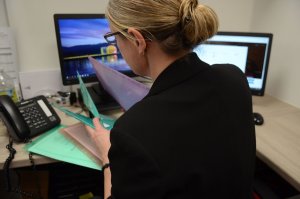One of the specific questions that is asked at this time of year is regarding study leave. It is the schools decision whether they wish to grant their pupils study leave but it should not be granted by default once the exam syllabus is complete.
Schools can authorise study leave for their students within their exam period at their own discretion. The DfE statutory guidance states that “schools must record study leave as authorised absence and that it should be used sparingly as well as only granted to year 11 pupils during their public examination period”. Year 11 students are still of compulsory school age until the last Friday in June.
Study leave can provide your pupils with the time to effectively revise for their exams and may reduce their anxiety levels around a particularly stressful time. Although it can be beneficial for some students, it is not for all. Some may not have the facilities, space and support at home to study effectively independently and the safety and security of school can be essential. Therefore, in order to cater for and meet the needs of all of your pupils, it is good practice that the school provide alternative options. The DFE (2018) guidelines support this and state that “provision should be made available for those pupils who want to continue to come into school to revise.” This can be done through offering study groups, silent zones, and subject refreshers for example. Many students benefit from a more structured programme and access to teachers during this period.
Here’s how your schools can support your pupils revision within school:####
Ensure that there’s enough space and resources for the students at your school to study and prepare.
Encourage your students to come in so that they can engage with fellow peers and teachers – by attending, they can ask last minute questions and refresh certain topics.
Make the revision classes in school enjoyable and attractive to your students – what will they gain from coming in? A way in doing this is to communicate with your students – ask for their opinion, what would help them revise? Do they want study groups, quiet rooms, focus on particular studies or topics etc? Tea and toast is always goes down well. This way, the students are having their say on what will help them to achieve academically.
By encouraging your pupils to attend school for revision, it can avoid the concern such as students becoming easily distracted and tempted to do other things, if they are left to revise at home. In addition to this, your school can avoid using the S code, as long as you provide a full timetable to revise and provide support in school, they then would be marked as present.
S code is statistically an authorised absence. As well as this, a further benefit of the pupils coming in, is that their revision can be supervised, to ensure that they are actively revising and engaging. Other benefits are that it can enable teachers to encourage and motivate pupils to strive for their predicted grades and higher. Some schools even believe that their exam results success is down to their students remaining in school right up until their exams. However, it is still important to take into consideration that all pupils learn differently and should be given different options as a result of this.
References:
1 – Department for Education; School attendance Guidance for maintained schools, academies, independent schools and local authorities Sept 2018
Please get in touch or visit our pupil attendance section for more information.















